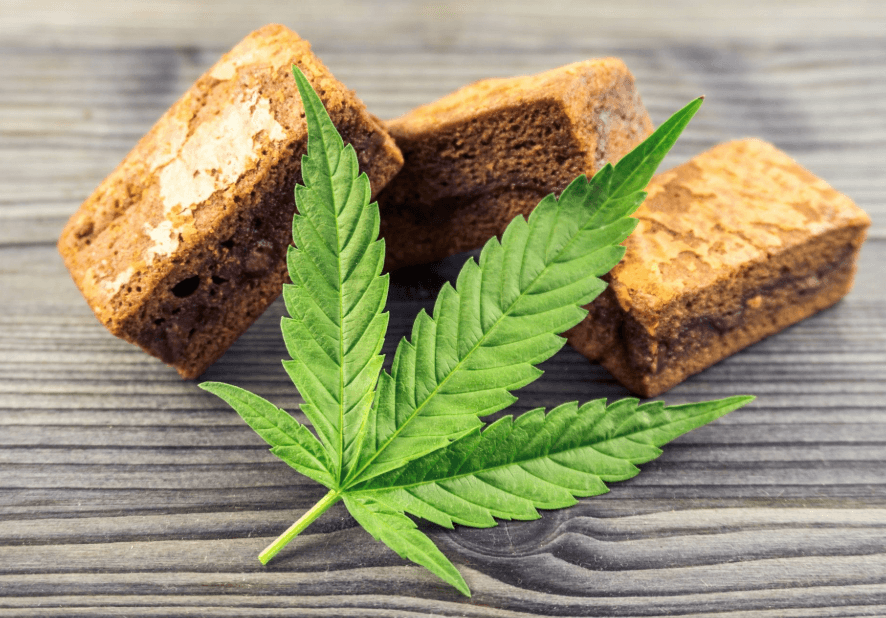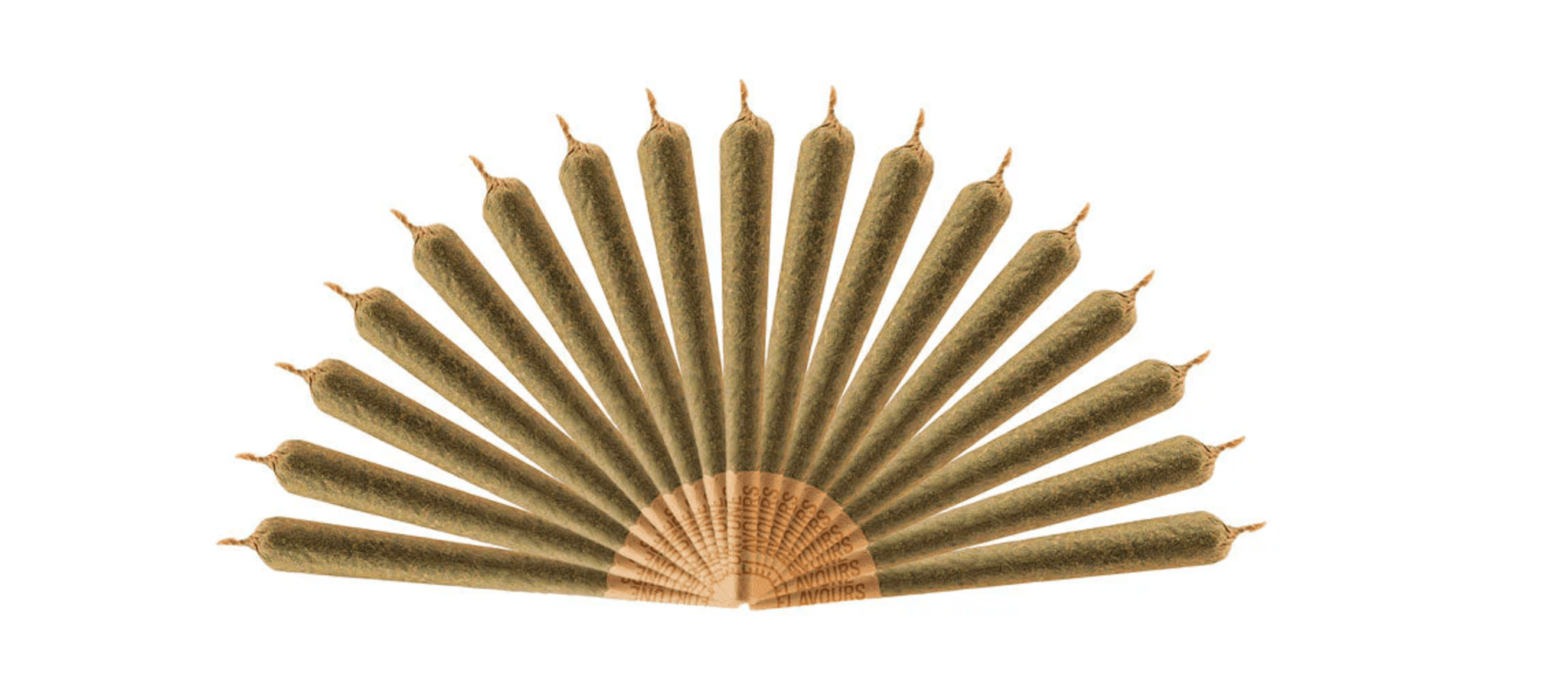Anecdotal evidence shows that CBD For pain relief could be an excellent way to deal with aches. This is mostly due to its anti-inflammatory properties. However, it could also be because of the way CBD interacts with the endocannabinoid system.
Today, we'll explore whether or not CBD can help with pain relief management. We'll also look into different forms of CBD, and the best methods to consume it to help with inflammation and pain.
CBD For Pain: What Does Research Say?
CBD Oil has been used for decades -- particularly in the forms of hemp and cannabis. However, the stigma associated with these forms of consumption meant that many people wrote it off as a passing trend.
Times have changed. With CBD legalised in the UK, the perception surrounding it seems to have changed for the better. Many people now add Cannabidiol to their wellness routines.
Read our related blog on: CBD Drug Tests in the UK
In addition to this, anecdotal evidence shows that CBD could have a host of health benefits. For example, a growing number of professional athletes are turning to CBD for relief management, and to aid their recovery times.
Various individuals also claim that Cannabidiol has helped them with anxiety, depression, and mood swings. Similarly, many parents in the UK have turned to Cannabidiol for help, if their children experience regular seizures.
At present, the anecdotal evidence might seem indisputable. That being said, when it comes to CBD Oil and pain, scientific evidence has yet to catch up.
We know that with CBD's rise in popularity, many scientists and researchers have explored its benefits. However, much of this exclusively involves animal-related studies. While the results are promising, more research needs to be done -- centering human beings and CBD.
The good news is that several studies related to the benefits of CBD are underway. We could see results supporting the benefits of CBD sooner than we think. Until then, we can turn to anecdotal evidence and the evidence in animal studies.
How Does CBD Work For Pain?
You may be wondering does CBD treat pain? Anecdotal evidence points to CBD being an excellent way to manage pain. If you've wanted to try it for yourself, you might also want to know how it works.
The answer is far less complicated than you might think. It all comes down to your endocannabinoid system (ECS). Your ECS is responsible for a variety of functions. For example, it can affect your appetite, your mood, and your quality of sleep.
Cannabis-based THC CBD could potentially help you manage pain all because it contains cannabinoids. When you consume CBD, these cannabinoids bind with the receptors in your ECS. This can affect how much pain you feel -- completely changing your chronic pain experience.
A study on CBD and the ECS in 2018 concluded that CBD could help to relieve pain, without severe side-effects. Therefore, if you're looking for a way to manage back aches and pains, CBD could be an excellent option.
What Form of CBD Should I Take to Manage Pain?
When it comes to managing pain with CBD, you're in for a treat. There are multiple forms of CBD Oil for pain available on the market. For example, you can choose from CBD flowers, oil, tinctures, vape liquids, and edibles.
If you're looking to target pain in specific areas, you can also opt for a CBD cream or topical.
Choosing a form of Cannabis-based Cannabidiol completely depends on your personal preference. There's no one-size-fits-all solution. A form of Cannabidiol that works for a friend or family member might not work as well for you.
It's also important to remember that not all CBD products are created equal. When choosing a CBD product -- especially to help with pain -- it's crucial to do your research. Before making a purchase, take your time and read some product reviews.
In addition to this, you should look up the manufacturers. By doing this, you'll be able to ensure that you're buying a Cannabidiol product from a reputable manufacturing company.
Furthermore, if you have questions about specific products, you should get in touch with the manufacturers. Most manufacturers would be happy to give you the information you need. They can also help to point you in the right direction when it comes to making a purchase.
TYPES OF CBD
If you're looking for CBD for pain management, we'd recommend two primary methods:
- CBD flower: all you have to do is grind up your CBD flowers and roll them in a joint. You can also smoke them in a pipe.
- CBD oil: for all your CBD needs -- especially if you don't smoke. CBD oil can be used sublingually. You can also add it to your food and drink.
We'll tell you a little more about each of these methods, and how to use them for pain management.
CBD Flower
CBD flowers are an exceptional way to consume CBD. People have been smoking CBD products for decades -- and with good reason. When you smoke CBD flowers, you experience high levels of bioavailability.
This means that your system absorbs practically all the CBD in the CBD flower. It also means that you could experience the effects practically immediately. If you're turning to CBD for pain management, this could be an excellent method of consumption.
At Fortune Flavours, we stock CBD flowers in a variety of strains in the UK:
- Blueberry Pie: This strain contains 28% CBD. Expect notes of blueberries, as well as a smooth nuttiness, and the sweetness of vanilla.
- Melonade: One of our favourite strains, this one smells and tastes like a delicious combination of citrus and lemon. It contains 28% CBD.
- Peach Cake: This strain smells strongly of a peachy baked dessert. You'll taste a fruity sweetness, under notes of pure CBD. The strain contains 28% CBD.
- Strawberry Kush: Enjoy the sharp sweetness of strawberry with this strain. It contains 28% CBD.
To use your CBD flowers, simply grind them up, and smoke them in your method of choice. We've discussed smoking and vaping CBD before, so click the link to read up on it.
CBD Oil for Pain
If you don't smoke, you're likely looking for another way to consume CBD. Well, fear not. CBD oils for pain are also a great way to get a dose of CBD.
Many people use CBD oil to help improve their quality of sleep, to improve their appetites, and to assist in pain management. You can use CBD oil in several different ways. However, the sublingual method is by far the most popular.
To use a CBD oil sublingually, simply place a few drops under your tongue. Hold it there for 30 seconds, before swallowing the rest of the oil. Taking Cannabidiol sublingually means that the bioavailability rate also remains high.
In addition to this, you can also add your CBD oil to a variety of food and drink. For example, consider adding your CBD oil to your morning coffee, or lunchtime sandwich. You can also cook with CBD oil, by adding it to recipes.
However, should you choose to consume CBD oil in this method, the bioavailability rate might be slightly lower. This means that you could experience the effects a little later than you would should you choose to consume it sublingually.
That being said, this could result in feeling the effects throughout the day, instead of all at once. If that sounds like something you need -- especially if you're using CBD for pain management -- this might be the method for you.
Furthermore, CBD oils are available in a wide variety of strengths. This helps to choose how much CBD oil to consume.
Shop CBD Oil From Fortune Flavours
At Fortune Flavours, we stock some of the best CBD oil products in the UK are in two strengths:
Our CBD oil is made from full-spectrum CBD, treating you to the entourage effect. This is when all the cannabinoids and terpenes work together, giving you the best possible benefits of CBD.
In addition to this, our CBD oils are crafted from the finest Swiss hemp. These oils are also manufactured in line with the best Swiss standards, made specifically for the UK market.
Our oils are 100% natural. Lab testing results are readily available on our website. If you have any other questions, feel free to get in touch, and we'll do our best to help.
Shop our selection of CBD oils right here on Fortune Flavours.
What Types of Pain Can CBD Help With?
Earlier, we mentioned that while more scientific research needs to be done, anecdotal evidence shows that CBD could help with pain relief management. However, you might want to know what specific types of pain Cannabidiol can help with.
We've put together a list -- backed by a combination of anecdotal evidence and scientific research -- of pain that CBD could potentially help with.
CBD and Arthritis Pain
In 2016, researchers conducted a study of CBD and arthritis, using rats. Results showed that medium-to-high doses of a CBD topical could help with arthritis inflammation and swelling.
However, we should also note that this study was conducted on rats. More animal studies have been conducted since then, with equally promising results. These results point to Cannabidiol potentially helping to ease arthritis pain, with minor side effects -- if at all.
Due to this, more regulated research -- featuring human subjects, this time -- should be conducted. This will help establish whether or not Cannabidiol could actually help with arthritis in humans.
In addition to this, there are no negative side-effects associated with CBD. Of course, the scientific jury might be out on whether CBD can actually help people with arthritis pains. However, you could very likely add it to your wellness routine, with no adverse effects.
CBD products can be taken in a number of ways. We'd recommend trying a tincture or an oil. You can consume these sublingually, or add them to your food or drink.
You could also opt for a CBD-infused topical, like a cream or a lotion. These topicals are often infused with other anti-inflammatory ingredients, like menthol and capsaicin. To use it, simply apply the topical on unbroken skin, over the affected area.
Chronic Pain and Cannabidiol
Many people use Cannabidiol to help with chronic pain. With an increasing number of individuals resorting to opioids to help with chronic pain, Cannabidiol is a welcome change. This is because CBD is completely natural -- for the most part. It's also non-addictive.
Studies show that CBD Oil could potentially help with chronic pain due to its interaction with the ECS. Its anti-inflammatory properties could also play a role here. It's also likely that this occurs when CBD receptors bind to the ECS, inhibiting pressure and feelings of pain.
While most evidence surrounding CBD and chronic pain is anecdotal, several studies from 2016 through 2018 can back this up. According to these results, CBD could be an effective way to manage chronic pain, without having to resort to opioids.
In addition to this, a study in 2012 found that it's very unlikely for users to build a tolerance to CBD. Therefore, there's no need for increased doses over time. Furthermore, addiction is rather uncommon, making it a safer option than opioids.
More studies could help establish whether or not CBD Oil can actually help with chronic pain. It could also help to demonstrate how much Cannabidiol people should take for chronic pain, and completely revolutionise accurate dosing.
There are multiple ways to consume CBD. We'd recommend opting for CBD capsules. You could also try edibles, such as CBD gummies, or adding some CBD oil to your morning coffee.
Edibles usually have a low bioavailability rate. This results in a slow release of CBD through your system, over the course of the day.
Using CBD in Sports Recovery
Many professional athletes and gym enthusiasts are turning to CBD, to help speed up their recovery periods. Whether they're dealing with muscle aches and pains, fatigue, or general physical wear and tear, CBD could help.
Due to its anti-inflammatory properties, CBD could tackle swelling and tenderness. It could also help with muscle aches, and help speed up your recovery time. Quicker recovery times could mean that you have more time to train, to work out, or to play the sport of your choice.
If you're an athlete, you might be wondering if CBD is safe to consume. Fear not -- the World Anti-Doping Agency removed Cannabidiol from its list of banned substances in 2018. Therefore, athletes can safely consume CBD without fear of being penalised.
A number of professional athletes have launched their own CBD lines. Many of them swear by tinctures and oils. Therefore, this is what we'd recommend.
However, many tinctures and oils could contain trace amounts of THC. If you're worried about the THC content, you could opt for a topical instead, like a CBD-infused muscle balm. This will ensure that the THC CBD doesn't affect you, as your system doesn't absorb topicals.
Simply apply it directly to your skin, and rub it in. A soothing balm could also help with other workout-related concerns, such as blisters and skin tears.
CBD and Muscle Aches
Muscle aches and discomfort are fairly common, and they aren't at all pleasant. They can be caused by several different reasons. However, the most common factors are:
- Stress and tension. You might carry your stress in your shoulders, causing them to tense up, and resulting in severe muscle aches.
- Overuse. Repetitive actions like typing could result in muscle aches in your wrists and shoulders.
- Poor sleep quality. That's right -- tossing and turning at night could result in sore muscles. Your muscles also heal when you sleep. Therefore, limited or poor sleep could halt or delay the healing process.
Muscle aches are usually caused by inflammation. Research shows that when CBD interacts with the ECS, its anti-inflammatory properties could perhaps help to improve the situation. A number of animal studies seem to reflect this.
In addition to this, many people take Cannabidiol to improve their quality of sleep. Better sleep could potentially help with muscle repair and recovery. It could also help to avoid future muscle aches and pains.
We'd recommend opting for a CBD tincture, or an oil. Taken sublingually, these products have a high bioavailability rate. This means that the effects could come on a lot quicker than with other methods.
Users could also try CBD flower. Many people use CBD flower to help them cope with pain, and improve their quality of sleep. Backed by substantial anecdotal evidence, this method could be worth trying.
Key Takeaways
More research needs to be done to properly establish whether or not Cannabidiol can help with pain management. However, both anecdotal evidence and animal-focused research seem to show that it can.
If you're looking to consume Cannabidiol to deal with aches and pains, there are numerous ways to take it. At Fortune Flavours, we'd recommend smoking CBD flowers or adding a good-quality CBD oil to your wellness routine.
Whether you're an athlete looking to increase your performance, or someone struggling with chronic pain, Cannabidiol could help. Shop our range of CBD products, right here at Fortune Flavours.
If you've liked reading this, be sure to check our other blog: The Ultimate Guide To CBD.


